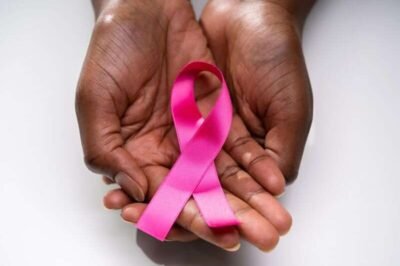As breast cancer cases rise among younger women, adopting a healthy diet and lifestyle has become more critical in reducing the risk of this serious disease. While genetics and environmental factors play a role, research shows that lifestyle choices, including diet, physical activity, and weight management, can have a significant impact on breast cancer prevention. By making thoughtful changes to daily habits, younger women can take proactive steps to lower their risk.
How a Healthy Diet May Help Reduce Breast Cancer Risk
Eating a healthy diet is one of the most effective ways to lower the risk of developing breast cancer. Diets rich in fruits, vegetables, whole grains, and lean proteins provide essential nutrients that help the body function properly and reduce inflammation, which is a known risk factor for cancer. Additionally, limiting processed foods, red meat, and sugar can lower the risk of hormone-related cancers like breast cancer.
Foods That May Lower Breast Cancer Risk:
Fruits and Vegetables: Rich in antioxidants and fiber, these foods help fight inflammation and boost the immune system.
Omega-3 Fatty Acids: Found in fish like salmon and flaxseeds, these healthy fats may reduce the risk of cancer by lowering inflammation.
Whole Grains: Brown rice, oats, and whole wheat provide fiber, which helps regulate hormones and maintain a healthy weight.
Lifestyle Choices to Lower Breast Cancer Risk
In addition to diet, other lifestyle choices play a crucial role in reducing breast cancer risk. Regular physical activity, for example, can help maintain a healthy weight, reduce inflammation, and balance hormone levels. Aim for at least 150 minutes of moderate exercise, such as brisk walking or cycling, each week to lower your risk.
Maintaining a healthy weight is also vital, as excess body fat, particularly after menopause, is linked to an increased risk of breast cancer. Fat tissue can produce estrogen, a hormone that, in excess, may contribute to the development of hormone-related cancers. By staying active and eating a nutrient-rich diet, women can lower their risk of obesity and, consequently, breast cancer.
Limiting Alcohol and Avoiding Smoking
Limiting alcohol intake is another important factor in breast cancer prevention. Research shows that women who consume alcohol regularly have a higher risk of developing the disease. Alcohol can increase estrogen levels and damage DNA, both of which are risk factors for cancer. Women are advised to limit alcohol to no more than one drink per day to minimize this risk.
Smoking is another risk factor that should be avoided. Smoking is linked to a higher risk of many cancers, including breast cancer, especially in premenopausal women. Quitting smoking or avoiding it altogether is essential for overall health and reducing cancer risk.
Prevention Through Diet and Lifestyle
As breast cancer cases rise among younger women, adopting a healthy diet and lifestyle can play a pivotal role in prevention. By focusing on nutrient-dense foods, maintaining regular exercise, and avoiding harmful habits like smoking and excessive alcohol consumption, women can take important steps to lower their breast cancer risk and protect their overall health.
FAQs
Q: Can a healthy diet really reduce the risk of breast cancer?
A: Yes, a healthy diet rich in fruits, vegetables, whole grains, and omega-3 fatty acids can help lower inflammation and balance hormone levels, both of which are linked to a reduced risk of breast cancer.
Q: How much exercise is recommended to lower breast cancer risk?
A: Regular physical activity, such as 150 minutes of moderate exercise per week, can help maintain a healthy weight and reduce the risk of breast cancer by balancing hormone levels and reducing inflammation.
Q: Does limiting alcohol consumption make a difference in breast cancer prevention?
A: Yes, limiting alcohol intake to no more than one drink per day is recommended, as alcohol can increase estrogen levels and the risk of DNA damage, both of which are linked to a higher chance of developing breast cancer.








Leave a Reply